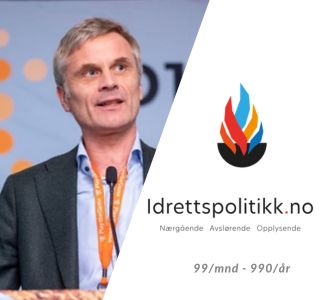(Eurasianet) A news outlet uncovering corruption in a largely rural region of Georgia on the border with Azerbaijan.
An independent living center for the disabled situated near the Black Sea coast in the country’s second-largest city, Batumi.
One of Georgia’s oldest human rights defense organizations, providing legal aid for victims of domestic and gender-based violence, refugees, and asylum seekers.
These are just some of the organizations that may face pressure or cease to operate if Georgia’s parliament, dominated by the ruling Georgian Dream party, approves a draft law on foreign influence in the coming months. Leaders of each of the above-mentioned groups told Eurasianet that they are fearful for the future of their respective organizations, either because they will refuse to self-identify as agents of foreign influence, as would be required by law, or they expect to be targeted if they declare their funding sources.
“It seems that our government does not care anymore [about] international pressure and international opinion,” said Vladimer Mkervalishvili, the director of Rights Georgia, which has operated in Georgia since 1997. He was referring to Georgian Dream’s disregard of European and American officials’ warnings that passing the so-called foreign agents bill will do irreparable damage to Georgia’s efforts to achieve its constitutionally enshrined goal of joining the European Union.
The bill currently being considered by parliament would require organizations receiving more than 20 percent of annual funding from sources outside the country to list themselves in a registry of entities acting on behalf of a foreign private or governmental entity. Based on developments in Russia after the adoption of similarly worded legislation, many in the Georgian non-profit sector fear that such disclosure will enable the government to clamp down Georgia’s vibrant civil society.
Such a law could crush watchdog activities aimed at holding the government accountable for its actions, as well as hinder work in a wide variety of areas that support transparency, social services, and an independent press. Western governmental agencies, along with large donor organizations, have long supported such activities out of a desire to nurture the rule of law and a democratic political system in the former Soviet republic.
Georgian Dream initially introduced foreign agents legislation in March of 2023 but backtracked after two days of mass protests. When Manon Bokucava, head of Kvemo Kartli Media, a news outlet covering the eponymous region in Georgia’s southeastern corner, learned that Georgian Dream had reintroduced the legislation on April 3 with barely any changes, she felt that a “nightmare” had returned.
“It can destroy all achievement toward democracy that we have in Georgia,” she said. “It will be the end of my journalistic career in Georgia. … No independent media will be able to operate under the label of a ‘foreign influence organization.’”
Kvemo Kartli Media publishes hard-hitting news in a region where there are few independent outlets. Last year, the outlet published an investigation into unfulfilled promises to deliver water to rural communities. In January, it published information about how regional officials earmarked more than $100,000 for shady car repairs.
The organization receives more than 20 percent of its funding from European grantmaking institutions, according to Bokucava, meaning that Kvemo Kartli Media would be required to self-label as an “agent of foreign influence,” to use the bill’s technical term. But Bokucava says she would sooner shut down than compromise the outlet’s reputation for journalistic independence. If the legislation becomes law, she does not plan to comply, and that is likely what will happen.
If the organization shuts its doors, it would create an independent news desert in Kvemo Kartli, a region with a significant Azeri minority. It would also eliminate a rural media literacy training program that the outlet runs.
The organization is far from alone in opposing the prospect of self-identifying as agents of foreign influence. On April 25, more than a hundred civil society organizations signed a petition stating they would not comply with the foreign agent registry, putting themselves in a position to cease operations quickly if such a law comes into effect.
Georgian Dream’s draft law has already accounted for non-compliance: if an organization does not agree to be listed in the registry, it will receive a monthly fine of up to $9,400. Experts say that in Georgia, such fines would force most independent organizations to shut down within just a couple of months.
According to a 2021 European Union report, between 1,200 and 2,300 civil society organizations operate in the country, a large number of which receive more than 20 percent of annual funding from abroad.
One of them is the Batumi Independent Living Center, one of roughly a dozen organizations working with disabled Georgians across the country that have signed a statement in opposition to the foreign agents bill. The director of the center’s board, Ramini Matcharashvili, told Eurasianet that he believes even if organizations like his are not the potential law’s intended targets, they could still feel pressure from the government if they speak out about the state’s deficiencies in an area like disability rights.
“If these organizations are no longer there, then it will be our turn” he said, referring to corruption watchdogs and election monitors that he perceives to be the primary targets of the legislation. “Every protest, every complaint – even to protect the rights of persons with disabilities … causes aggression from the state.”
Those working to protect individual rights and promote the rule of law also expect to feel squeezed by the foreign agents legislation. “It will be impossible to continue working,” said Mkervalishvili, the Rights Georgia head. His group is well known for collecting evidence for cases of human rights abuses related to Russia’s invasion of Georgia in 2008. Its lawyers have submitted dozens of cases to the European Court for Human Rights, and it has worked closely with multiple United Nations agencies.
These days Rights Georgia is also focusing on domestic and gender-based violence cases, addressing a gap in state-run legal protection mechanisms, according to Mkervalishvili. But those services are now hanging by a thread. Rights Georgia is among the organizations that have promised not to comply with the foreign influence legislation. If the law goes into effect, the roughly 70 people the group is currently working with on these cases could lose legal support overnight.
“I’m totally confused. How can I continue working on these cases if they label me as a foreign agent?” said Mkervalishvili. He explained that a big factor in his decision not to comply with the registry is the broad powers authorities would gain to access confidential case files kept at Rights Georgia’s offices.
When asked if he believes there is any possibility of the legislation’s defeat, Mkervalishvili said he retains hope in ongoing protests throughout the country. In Tbilisi, Georgians have demonstrated outside of parliament each night for two weeks, including mass rallies against the law on April 17 and 28.
Georgian Dream planned a pro-law rally for April 29 to coincide with the second of three readings of the bill that are required before it can be enacted.
“We [believe] that we should fight, that the government should not pass this bill. Otherwise, we lose our sovereignty, our state, democracy, and everything,” Mkervalishvili said.
This article was first published at Eurasianet, and republished in Transit Magasin under a Creative Commons Attribution/No-derivatives license (CC BY-ND 4.0).








